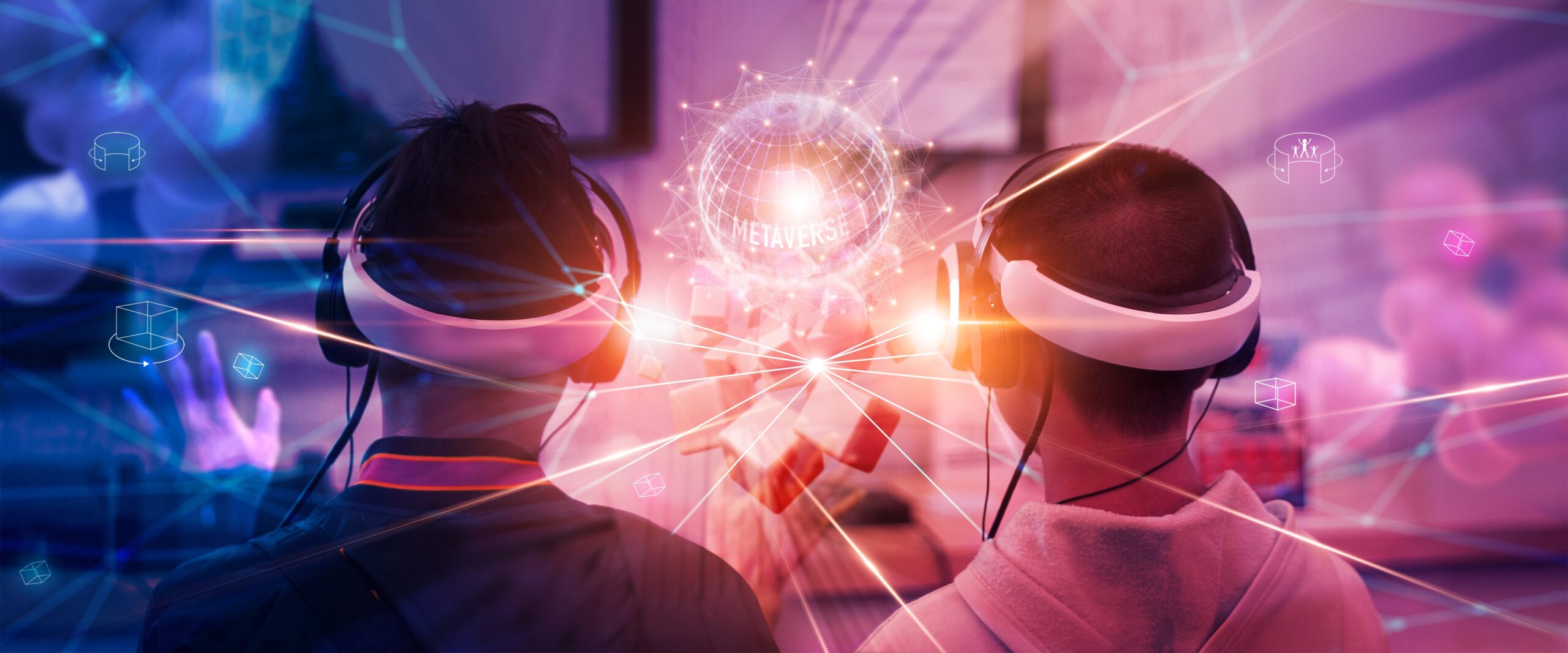
Artificial intelligence (AI) is a technology segment impacting everything from healthcare and manufacturing industries, to retail and automotive businesses. It’s one of the fastest-growing technologies that is already impacting gaming and virtual reality studios, with evolving potential to shape gaming experiences.
According to Grand View Research, the global AI market size was valued at $136.55 billion in 2022. It’s expected to grow at a compound annual growth rate of 37.3% from 2023 to 2030.
For gaming professionals, AI can unlock amazing potential in game development and gameplay for consumers. The following are 10 ways AI is currently disrupting and has the potential to further disrupt, gaming and VR industries.
1. Immersive Virtual Worlds
One of the most exciting ways AI can impact gameplay is through the creation of virtual environments that are realistic, natural and responsive to gameplay. Instead of restricting players to certain settings, machine learning algorithms can create landscapes based on unique gameplay, evolving virtual settings with every choice a gamer makes.
2. Richer Characters
Similar to game environments, AI can make characters in games more dynamic and interesting to interact with. While non-player characters of the past were restricted to predetermined scripts, AI enables gamers to interact with characters in more realistic and unpredictable ways. Character responses are limitless, which enables endlessly unique interactions to take place.
One gaming company leading the way with AI-enabled characters is SEED (EA). The firm is using top players to train AI-powered simulated characters.
3. Limitless Storylines
Related to more complex characters, AI enhances content generation in general. Machine learning can automatically generate content including objects, characters, fashions, abilities and levels, so that intricate gameplay scenarios can appear with less manual design required. This feature makes game development easier, so professionals can create more complex games with less manpower required, such as in the AI-driven fantasy simulation AI Dungeon 2.
4. Enhanced Personalization
AI can help improve the gaming experience by delivering more personalized gameplay. As AI learns gamer preferences, it can use gamer actions and choices to influence everything from difficulty levels to how a game unfolds. AI has the potential to create truly personalized gaming experiences for each gamer in the same game.
5. Biometric Capabilities
One of the more futuristic capabilities of AI in gaming is using biometric data captured through virtual reality to influence gameplay. For example, facial expressions or body language could influence how a game unfolds. It’s possible that a gamer’s emotional states while playing a game could impact the way a gaming narrative plays out, which again, improves gaming personalization.
6. Never-Ending Gameplay
Forget beating a game and putting it on the shelf to collect dust. With AI, game developers can build games that players can play forever. That’s because AI has the potential to constantly adapt to a gamer’s gameplay. Instead of pitting a gamer against a machine that’s virtually impossible to beat, AI gameplay can adapt to the human gamer’s and provide an engaging challenge at every level. This opens up the possibility for forever gameplay, where as a gamer gets better, the AI tool provides incrementally more challenging gameplay, as well.
7. Real-Life Virtual Worlds
Like AI, virtual reality capabilities are growing at a rapid rate. Grand View Research reports the global virtual reality market was valued at $28.41 billion in 2022, with expectations to increase at a compound annual growth rate of 13.8% from 2023 to 2030. Gamers who play with virtual reality headsets are seeing increasingly realistic depictions in virtual worlds. Gamers can interact with these worlds wherever they’re connected, which opens up the potential for increasingly realistic game design and gameplay experiences.
8. Banishing Cheaters
For gamers who have played multiplayer games infected by cheaters, AI provides a way to foster fairer gaming. As “Forbes” reports, AI can help detect player movement patterns that indicate cheating and help games restrict those players. This is a valuable capability for gaming studios that risk losing players due to cheater-filled game environments.
9. Automated Game Testing
Releasing a game with bugs is the stuff of nightmares for game developers. AI helps streamline game testing, as it can automate playtesting to find problems and shortcuts. It also can help developers identify all potential player actions, which leads to better game development through enhanced gameplay understanding. This can help gaming studios produce games more effectively, faster, helping studios grow their businesses and better serve their target audiences.
10. Better Analytics
Another way AI can help gaming studios is through data-gathering and analytics capabilities. Studios that want to learn more about their customers and target audiences can tap into AI-generated analytics that provide insights into gamer behavior. Studios can also use machine learning to make predictions for gameplay and design accordingly. With AI-powered games, studios can improve gameplay in real time based on gamer behavior.
AI & VR Make Gamers Part of the Game
AI and VR capabilities continue to evolve at a rapid pace, which is great news for gaming studios and gamers. From putting people right in their favorite games, to creating hyper-realistic and personalized gaming worlds, there’s endless potential for how AI and VR technologies can enhance the gaming experience.
Are you a gaming professional? Join the ggLocators network of gaming professionals to tap into job opportunities. We also help gaming studios find top talent. Contact us for how we can help.


